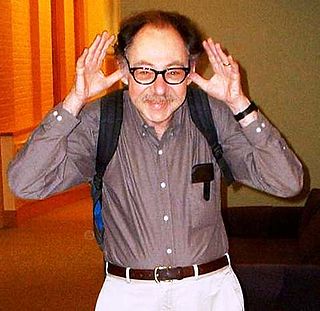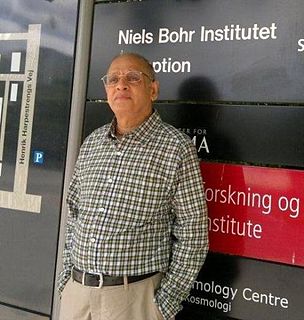A Quote by Alain Aspect
Certainly we do not need quantum mechanics for macroscopic objects, which are well described by classical physics - this is the reason why quantum mechanics seems so foreign to our everyday existence.
Related Quotes
In quantum mechanics there is A causing B. The equations do not stand outside that usual paradigm of physics. The real issue is that the kinds of things you predict in quantum mechanics are different from the kinds of things you predict using general relativity. Quantum mechanics, that big, new, spectacular remarkable idea is that you only predict probabilities, the likelihood of one outcome or another. That's the new idea.
It seems sensible to discard all hope of observing hitherto unobservable quantities, such as the position and period of the electron... Instead it seems more reasonable to try to establish a theoretical quantum mechanics, analogous to classical mechanics, but in which only relations between observable quantities occur.
'Participant' is the incontrovertible new concept given by quantum mechanics. It strikes down the 'observer' of classical theory, the man who stands safely behind the thick glass wall and watches what goes on without taking part. It can't be done, quantum mechanics says it...May the universe in some sense be 'brought into being' by the participation of those who participate?
One of the most exciting things about dark energy is that it seems to live at the very nexus of two of our most successful theories of physics: quantum mechanics, which explains the physics of the small, and Einstein's Theory of General Relativity, which explains the physics of the large, including gravity.
Ancient wisdom and quantum physicists make unlikely bedfellows: In quantum mechanics the observer determines (or even brings into being) what is observed, and so, too, for the Tiwis, who dissolve the distinction between themselves and the cosmos. In quantum physics, subatomic particles influence each other from a distance, and this tallies with the aboriginal view, in which people, animals, rocks, and trees all weave together in the same interwoven fabric.
When the province of physical theory was extended to encompass microscopic phenomena through the creation of quantum mechanics, the concept of consciousness came to the fore again. It was not possible to formulate the laws of quantum mechanics in a fully consistent way without reference to the consciousness.
Quantum mechanics is just completely strange and counterintuitive. We can't believe that things can be here [in one place] and there [in another place] at the same time. And yet that's a fundamental piece of quantum mechanics. So then the question is, life is dealing us weird lemons, can we make some weird lemonade from this?
Scientific realism in classical (i.e. pre-quantum) physics has remained compatible with the naive realism of everyday thinking on the whole; whereas it has proven impossible to find any consistent way to visualize the world underlying quantum theory in terms of our pictures in the everyday world. The general conclusion is that in quantum theory naive realism, although necessary at the level of observations, fails at the microscopic level.






























